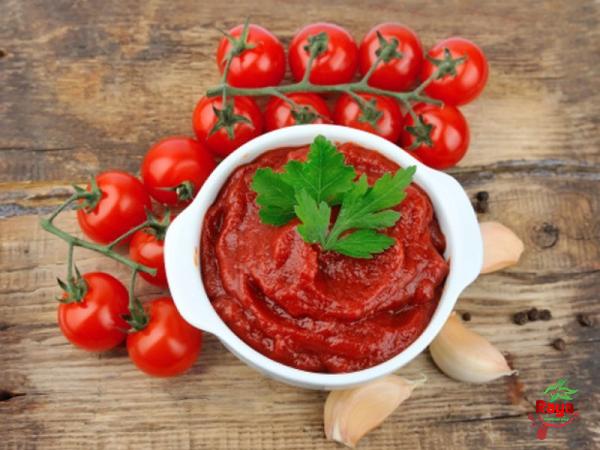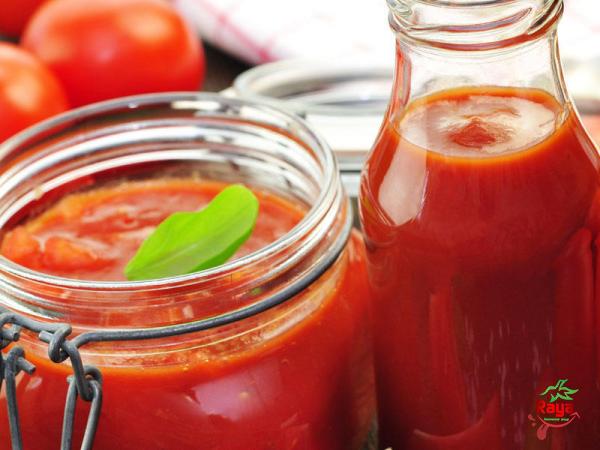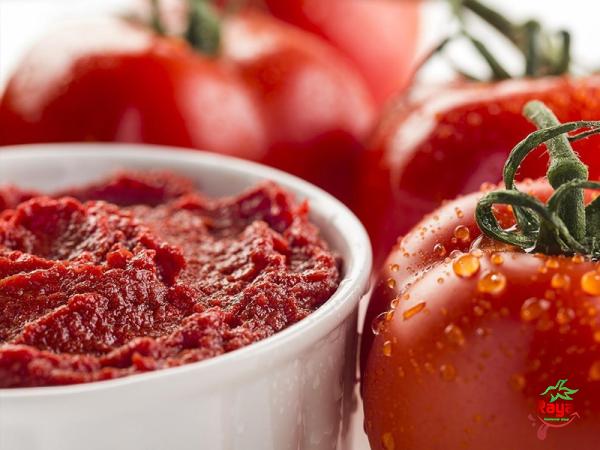An Overview of Organic Tomato Sauce: Health Benefits, Production Methods, and Market Trends Introduction: Organic tomato sauce has gained significant popularity among health-conscious consumers in recent years. With an increasing awareness about the health benefits of organic foods, the demand for organic tomato sauce has witnessed a substantial surge. This article aims to provide a comprehensive overview of organic tomato sauce, shedding light on its health benefits, production methods, and market trends. Health Benefits of Organic Tomato Sauce: Organic tomato sauce offers several health benefits due to its organic nature and the absence of chemical additives. It is a rich source of essential nutrients, vitamins, and minerals that contribute to overall well-being. Moreover, organic tomato sauce is known for its antioxidant properties, which can help reduce the risk of chronic diseases, including heart disease and certain types of cancer. It is also a good source of lycopene, a powerful antioxidant that has been linked to a lower risk of prostate cancer. Production Methods of Organic Tomato Sauce: To qualify as organic, tomato sauce must adhere to strict production methods that focus on natural and sustainable practices. Organic farmers rely on natural fertilizers, compost, and crop rotation techniques to maintain the health of the soil. They also avoid synthetic pesticides, herbicides, and genetically modified organisms (GMOs) in order to minimize the harmful impact on the environment and consumers’ health. The production process begins with the cultivation of organic tomatoes. Organic farmers carefully select tomato varieties that are most suitable for their specific climatic conditions. They typically use drip irrigation methods to conserve water and reduce waste. As the tomatoes ripen, they are harvested and transported to processing facilities. At the processing facilities, the tomatoes are thoroughly washed to remove any impurities. They are then sorted, with damaged or unsuitable tomatoes being discarded. The ripe tomatoes are crushed or juiced, and the resulting liquid undergoes a filtration process to remove any remaining solids. Natural spices, herbs, and seasonings are added to enhance the flavor of the sauce. Finally, the sauce is packaged in jars or cans for distribution to consumers.

tomato paste
 Market Trends for Organic Tomato Sauce: The market for organic tomato sauce has experienced remarkable growth in the past decade, driven by increasing consumer awareness of health and environmental concerns. The demand for organic products, including tomato sauce, is particularly strong among millennials and Generation Z, who prioritize sustainability, natural ingredients, and ethical sourcing. The organic food sector has witnessed a significant boost as consumers seek out products that are free from synthetic chemicals and preservatives. Organic tomato sauce has become a staple in many households as consumers look for healthier alternatives to conventional tomato sauces. Moreover, the growing preference for plant-based diets, including vegan and vegetarian lifestyles, has further fueled the demand for organic tomato sauce. With its natural ingredients and absence of animal-derived components, organic tomato sauce is suitable for a wide range of dietary preferences. The mainstream adoption of organic food products by major supermarkets and grocery stores has also played a pivotal role in driving the market growth of organic tomato sauce. In order to cater to the rising demand, several brands have introduced organic tomato sauce variants in their product lines, offering consumers a wider selection of choices. Challenges and Opportunities: While the market for organic tomato sauce continues to expand, there are certain challenges that need to be addressed. One of the primary challenges is the higher cost associated with organic production methods. Organic farming practices require more labor-intensive processes, and farmers often face higher input costs. Consequently, organic tomato sauce tends to be priced higher compared to conventional alternatives. However, consumers willing to pay a premium for organic products have been willing to make this trade-off. Another challenge lies in the competition faced by organic tomato sauce brands from conventional alternatives. While organic food products have gained popularity, conventional tomato sauce still dominates the market due to its affordability and wider availability. To overcome this challenge, organic tomato sauce brands need to continue educating consumers about the benefits of organic products and promote their unique selling points.
Market Trends for Organic Tomato Sauce: The market for organic tomato sauce has experienced remarkable growth in the past decade, driven by increasing consumer awareness of health and environmental concerns. The demand for organic products, including tomato sauce, is particularly strong among millennials and Generation Z, who prioritize sustainability, natural ingredients, and ethical sourcing. The organic food sector has witnessed a significant boost as consumers seek out products that are free from synthetic chemicals and preservatives. Organic tomato sauce has become a staple in many households as consumers look for healthier alternatives to conventional tomato sauces. Moreover, the growing preference for plant-based diets, including vegan and vegetarian lifestyles, has further fueled the demand for organic tomato sauce. With its natural ingredients and absence of animal-derived components, organic tomato sauce is suitable for a wide range of dietary preferences. The mainstream adoption of organic food products by major supermarkets and grocery stores has also played a pivotal role in driving the market growth of organic tomato sauce. In order to cater to the rising demand, several brands have introduced organic tomato sauce variants in their product lines, offering consumers a wider selection of choices. Challenges and Opportunities: While the market for organic tomato sauce continues to expand, there are certain challenges that need to be addressed. One of the primary challenges is the higher cost associated with organic production methods. Organic farming practices require more labor-intensive processes, and farmers often face higher input costs. Consequently, organic tomato sauce tends to be priced higher compared to conventional alternatives. However, consumers willing to pay a premium for organic products have been willing to make this trade-off. Another challenge lies in the competition faced by organic tomato sauce brands from conventional alternatives. While organic food products have gained popularity, conventional tomato sauce still dominates the market due to its affordability and wider availability. To overcome this challenge, organic tomato sauce brands need to continue educating consumers about the benefits of organic products and promote their unique selling points.
Specifications of tomato paste
 Conclusion: Organic tomato sauce offers a healthy and flavorful alternative to conventional options. With its numerous health benefits, organic production methods, and growing market demand, it is clear that organic tomato sauce is much more than just a passing trend. As consumers become increasingly conscious about the ingredients they consume and the impact on their health and the environment, the demand for organic tomato sauce is likely to continue its upward trajectory.Organic Tomato Sauce: A Growing Business Opportunity 1. Increasing Consumer Awareness and Demand The demand for organic tomato sauce has soared in recent years, driven by an increasing awareness among consumers about the health and environmental benefits of organic foods. With the organic food market experiencing exponential growth, the demand for organic tomato sauce is gaining momentum as consumers seek healthier and more sustainable alternatives. 2. Health-conscious Lifestyle Choices The rise of health-conscious lifestyles, including vegetarian, vegan, and plant-based diets, has significantly contributed to the growing demand for organic tomato sauce. As consumers increasingly prioritize natural and organic ingredients, they are turning to organic tomato sauce as a key component of their nutritious and flavorful meals. 3. Premium Quality and Nutritional Value Organic tomato sauce is known for its superior quality and nutritional value. Organic farming practices ensure that the tomatoes used in the sauce are grown without the use of harmful pesticides and chemical fertilizers. This results in a product that is rich in nutrients, vitamins, and antioxidants, making it a healthier option compared to conventional tomato sauce. 4. Ethical and Sustainable Sourcing Organic tomato sauce appeals to consumers who are concerned about the ethical and sustainable sourcing of their food. Organic farming practices prioritize soil health, biodiversity, and conservation, while also reducing water consumption and carbon footprint. By choosing organic tomato sauce, consumers can support sustainable agricultural practices and contribute to a healthier planet. 5. Certification and labeling The certification and labeling of organic tomato sauce play a crucial role in building consumer trust and confidence. Organic products certified by reputable organizations, such as the USDA Organic or the European Union Organic Certification, undergo rigorous monitoring and auditing processes to ensure compliance with organic standards. Clear and accurate labeling helps consumers easily identify and differentiate organic tomato sauce from conventional alternatives. 6. Brand Differentiation and Market Competition Establishing a strong brand presence and differentiating from competitors is essential in the competitive organic tomato sauce market. Brands that communicate their commitment to organic farming methods, sustainable sourcing, and superior quality can create a unique selling proposition that resonates with health-conscious consumers.
Conclusion: Organic tomato sauce offers a healthy and flavorful alternative to conventional options. With its numerous health benefits, organic production methods, and growing market demand, it is clear that organic tomato sauce is much more than just a passing trend. As consumers become increasingly conscious about the ingredients they consume and the impact on their health and the environment, the demand for organic tomato sauce is likely to continue its upward trajectory.Organic Tomato Sauce: A Growing Business Opportunity 1. Increasing Consumer Awareness and Demand The demand for organic tomato sauce has soared in recent years, driven by an increasing awareness among consumers about the health and environmental benefits of organic foods. With the organic food market experiencing exponential growth, the demand for organic tomato sauce is gaining momentum as consumers seek healthier and more sustainable alternatives. 2. Health-conscious Lifestyle Choices The rise of health-conscious lifestyles, including vegetarian, vegan, and plant-based diets, has significantly contributed to the growing demand for organic tomato sauce. As consumers increasingly prioritize natural and organic ingredients, they are turning to organic tomato sauce as a key component of their nutritious and flavorful meals. 3. Premium Quality and Nutritional Value Organic tomato sauce is known for its superior quality and nutritional value. Organic farming practices ensure that the tomatoes used in the sauce are grown without the use of harmful pesticides and chemical fertilizers. This results in a product that is rich in nutrients, vitamins, and antioxidants, making it a healthier option compared to conventional tomato sauce. 4. Ethical and Sustainable Sourcing Organic tomato sauce appeals to consumers who are concerned about the ethical and sustainable sourcing of their food. Organic farming practices prioritize soil health, biodiversity, and conservation, while also reducing water consumption and carbon footprint. By choosing organic tomato sauce, consumers can support sustainable agricultural practices and contribute to a healthier planet. 5. Certification and labeling The certification and labeling of organic tomato sauce play a crucial role in building consumer trust and confidence. Organic products certified by reputable organizations, such as the USDA Organic or the European Union Organic Certification, undergo rigorous monitoring and auditing processes to ensure compliance with organic standards. Clear and accurate labeling helps consumers easily identify and differentiate organic tomato sauce from conventional alternatives. 6. Brand Differentiation and Market Competition Establishing a strong brand presence and differentiating from competitors is essential in the competitive organic tomato sauce market. Brands that communicate their commitment to organic farming methods, sustainable sourcing, and superior quality can create a unique selling proposition that resonates with health-conscious consumers.
buy tomato paste
 7. Marketing and Promotion Strategies To capture a significant share of the organic tomato sauce market, effective marketing and promotion strategies are essential. Brands should focus on educating consumers about the health benefits of organic tomato sauce, highlighting its superior quality and nutritional value. Utilizing digital marketing channels, such as social media platforms and influencer collaborations, can help increase brand visibility and reach a broader audience. 8. Distribution Channels and Retail Partnerships Forming strategic partnerships with retail establishments and distribution channels is critical for organic tomato sauce brands. By securing shelf space in major supermarkets, health food stores, and specialty retailers, brands can increase their market reach and accessibility to target consumers. Online platforms and e-commerce marketplaces also offer significant opportunities for organic tomato sauce brands to expand their distribution networks. 9. Sustainable Packaging Solutions As sustainability becomes a key consumer concern, organic tomato sauce brands should prioritize eco-friendly packaging solutions. Utilizing recyclable materials, reducing plastic usage, and exploring innovative packaging techniques can enhance the brand’s environmental credentials and appeal to consumers seeking products with minimal environmental impact. 10. Consumer Education and Product Sampling Educating consumers about the benefits of organic tomato sauce is crucial for generating interest and promoting sales. Brands can organize cooking demonstrations, tastings, and workshops at supermarkets, food festivals, and community events to showcase the superior taste and health benefits of their organic tomato sauce. Offering product samples or trial-sized packaging can also incentivize consumers to try the product and encourage repeat purchases. 11. International Market Expansion The organic food market, including organic tomato sauce, extends beyond domestic boundaries. Growing international demand for organic products provides opportunities for organic tomato sauce brands to explore export markets. Conducting market research to identify key target markets, understanding import regulations and consumer preferences, and adapting marketing strategies can help brands successfully expand their presence in global markets. 12. Continued Innovation and Product Development To remain competitive and meet evolving consumer preferences, organic tomato sauce brands should focus on continuous innovation and product development. This can involve offering new flavors, low-sodium or sugar-free options, or catering to specific dietary needs, such as gluten-free or allergen-free variants. Investing in research and development can help brands stay ahead of the competition and cater to diverse consumer demands. Conclusion: Organic tomato sauce represents a thriving business opportunity driven by consumer demand for healthier, sustainable, and ethically sourced food products. With increasing awareness of the health benefits of organic foods, coupled with a preference for quality and nutrition, organic tomato sauce is poised for continued growth. By understanding consumer preferences, implementing effective marketing strategies, and focusing on product quality and differentiation, organic tomato sauce brands can thrive in this competitive market and contribute to a more sustainable and healthier food industry.
7. Marketing and Promotion Strategies To capture a significant share of the organic tomato sauce market, effective marketing and promotion strategies are essential. Brands should focus on educating consumers about the health benefits of organic tomato sauce, highlighting its superior quality and nutritional value. Utilizing digital marketing channels, such as social media platforms and influencer collaborations, can help increase brand visibility and reach a broader audience. 8. Distribution Channels and Retail Partnerships Forming strategic partnerships with retail establishments and distribution channels is critical for organic tomato sauce brands. By securing shelf space in major supermarkets, health food stores, and specialty retailers, brands can increase their market reach and accessibility to target consumers. Online platforms and e-commerce marketplaces also offer significant opportunities for organic tomato sauce brands to expand their distribution networks. 9. Sustainable Packaging Solutions As sustainability becomes a key consumer concern, organic tomato sauce brands should prioritize eco-friendly packaging solutions. Utilizing recyclable materials, reducing plastic usage, and exploring innovative packaging techniques can enhance the brand’s environmental credentials and appeal to consumers seeking products with minimal environmental impact. 10. Consumer Education and Product Sampling Educating consumers about the benefits of organic tomato sauce is crucial for generating interest and promoting sales. Brands can organize cooking demonstrations, tastings, and workshops at supermarkets, food festivals, and community events to showcase the superior taste and health benefits of their organic tomato sauce. Offering product samples or trial-sized packaging can also incentivize consumers to try the product and encourage repeat purchases. 11. International Market Expansion The organic food market, including organic tomato sauce, extends beyond domestic boundaries. Growing international demand for organic products provides opportunities for organic tomato sauce brands to explore export markets. Conducting market research to identify key target markets, understanding import regulations and consumer preferences, and adapting marketing strategies can help brands successfully expand their presence in global markets. 12. Continued Innovation and Product Development To remain competitive and meet evolving consumer preferences, organic tomato sauce brands should focus on continuous innovation and product development. This can involve offering new flavors, low-sodium or sugar-free options, or catering to specific dietary needs, such as gluten-free or allergen-free variants. Investing in research and development can help brands stay ahead of the competition and cater to diverse consumer demands. Conclusion: Organic tomato sauce represents a thriving business opportunity driven by consumer demand for healthier, sustainable, and ethically sourced food products. With increasing awareness of the health benefits of organic foods, coupled with a preference for quality and nutrition, organic tomato sauce is poised for continued growth. By understanding consumer preferences, implementing effective marketing strategies, and focusing on product quality and differentiation, organic tomato sauce brands can thrive in this competitive market and contribute to a more sustainable and healthier food industry.









Your comment submitted.